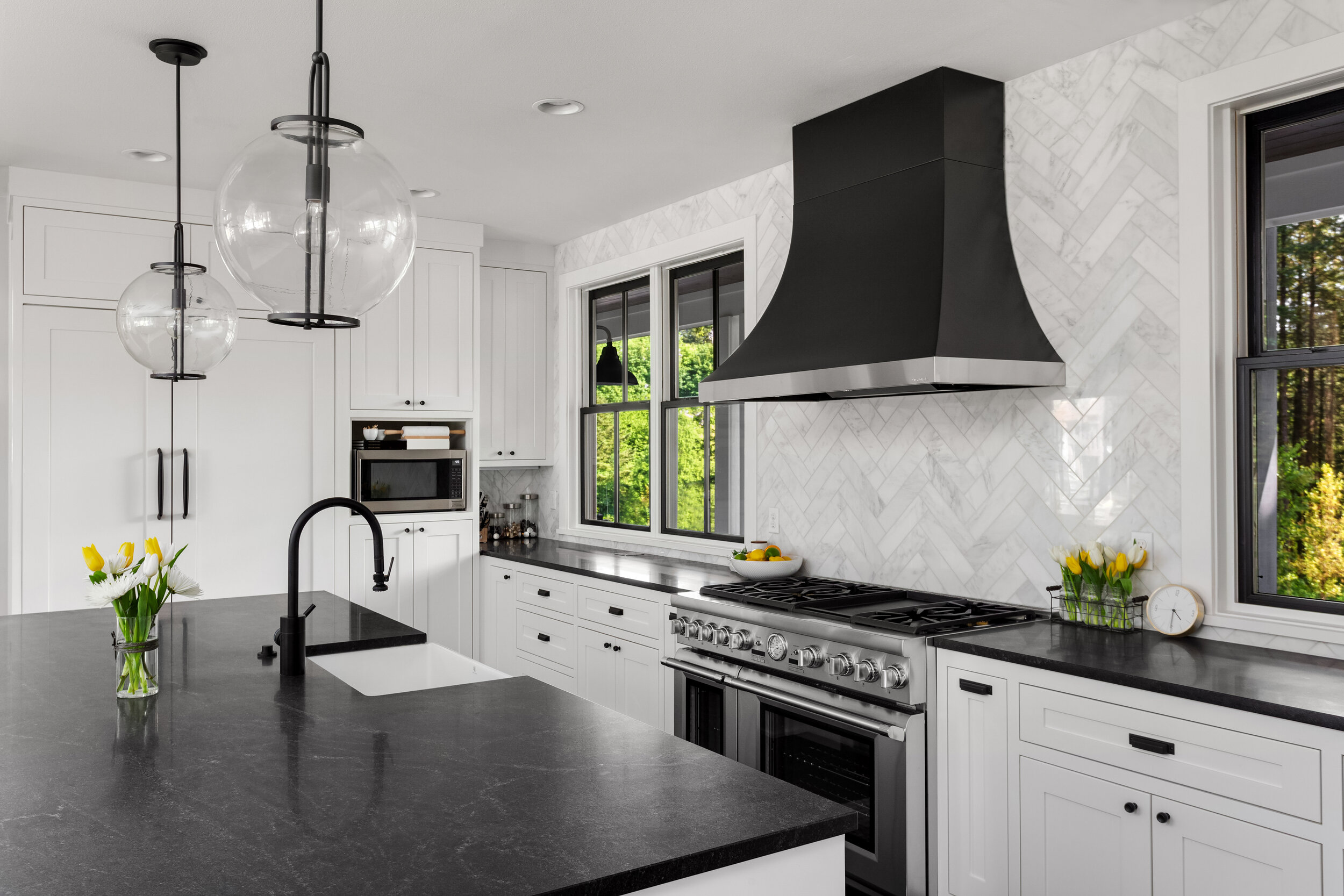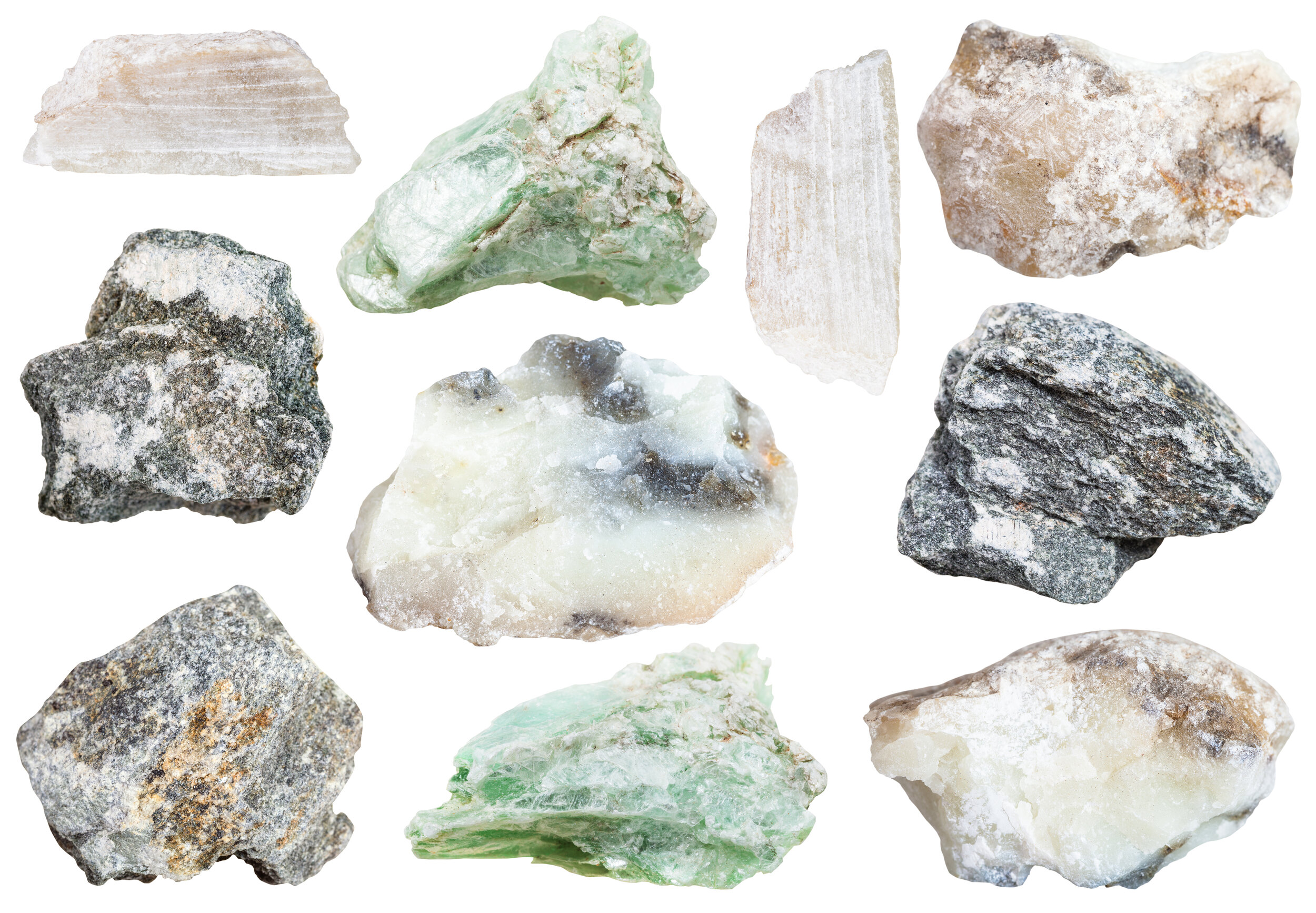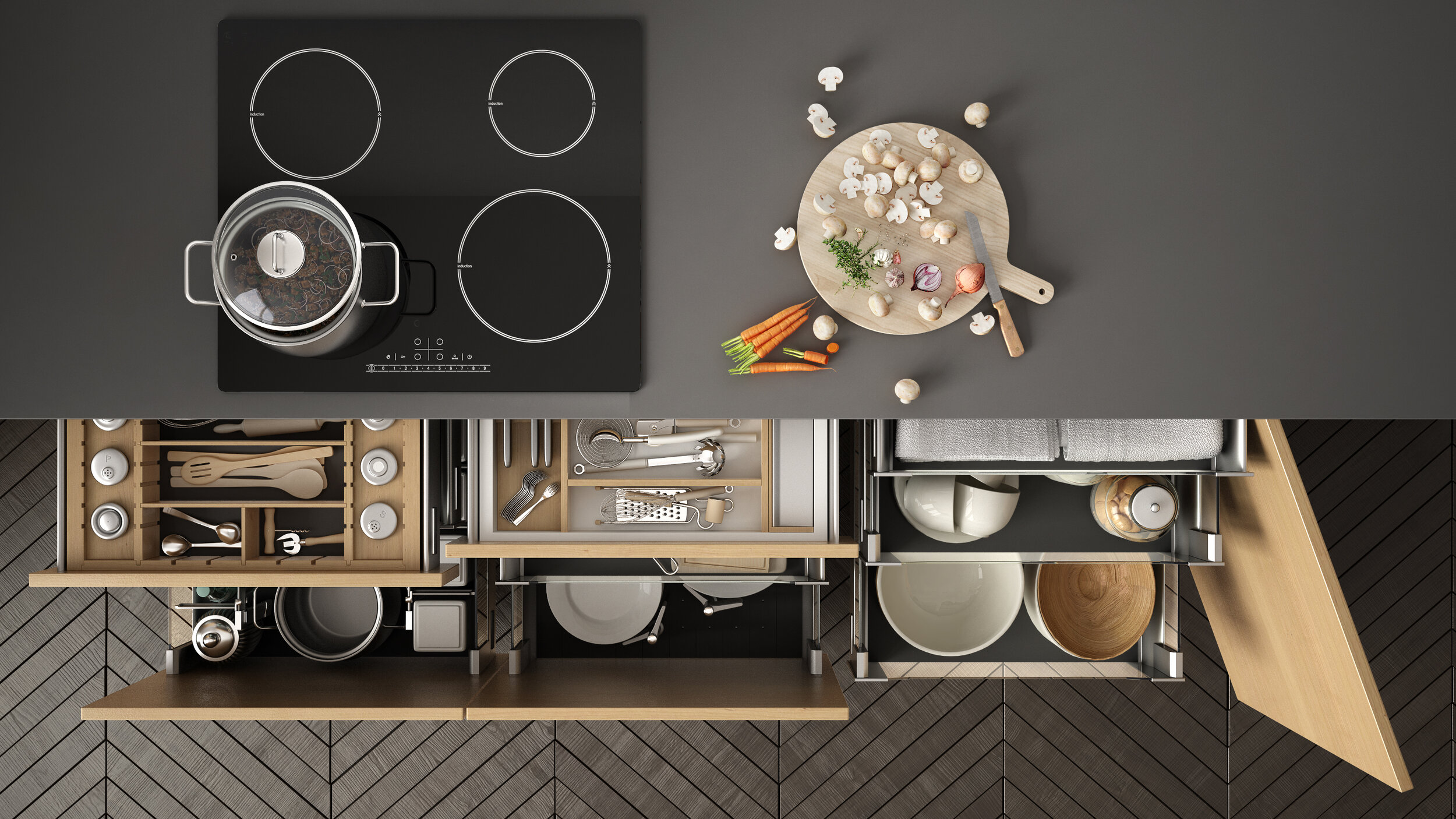Soapstone Countertops For a Modern Home: Are They Worth It?
/Soapstone Countertops
Disclaimer: As an Amazon Associate I earn from qualifying purchases. There are affiliate links in this post. This means that at no cost to you, I will receive a commission if you purchase through my link. I will only ever promote the products and services that I trust and 100% recommend. You may read my full disclosure policy for more information. Thank you for supporting my business in this way.
Soapstone countertops are a popular choice in kitchens, bathrooms, and even university laboratories. What makes this material so attractive? It’s heat-resistant, highly stable, and it comes in an array of neutral, natural colors.
Read on to learn everything you need to know before purchasing a soapstone countertop for your home.
Soapstone Defined
Soapstone is a natural stone made up almost entirely of talc. Because it is easy to shape and carve, the material has been used for centuries to create pots, pans, bowls, plates, fireplaces, and more. It has been quarried and used to make cooking utensils since the Stone Age. It’s even been used to create buildings, sculptures, and famous statues such as the Brazilian “Christ the Redeemer”.
In modern times, soapstone continues to be used for a wide range of applications, including countertops, floor tiles, and sinks. It is highly heat-resistant, making it a great material for residential and commercial kitchens, flooring and wall panelling, fireplaces and cooking utensils, and even laboratories. It is frequently used as an alternative to granite or marble.
See also: A Complete Guide to Parquet Flooring
Soapstone can vary in density and hardness depending on where it is sourced. The harder, denser varieties of soapstone are typically best for kitchen countertops, because they will be easier to wipe down and disinfect. When used for kitchen countertops, it will often contain a large amount of quartz. This is because soapstone is naturally very soft, and the quartz will make it harder and more scratch-resistant for a kitchen.
Benefits of Soapstone Countertops
Soapstone is a very dense material, making it extremely hygienic. It won’t absorb dropped food particles, humidity, or bacteria. Plus, it’s easy-to-clean — not to mention low maintenance — making it a great material for kitchens or bathrooms. The heat-resistance of soapstone also makes it an attractive option for kitchens. You can put hot pots and pans directly on the countertop without worrying about damaging the material.
How to Care For Soapstone
Soapstone requires almost no maintenance, which is good news to the ears of homeowners! Still, there are a few aspects you should be aware of to keep your countertops in great working condition over time.
Protect the surface from dents and scratches
Be aware that soapstone — because it is a soft material — is more prone to marks and scratches than other types of stones. Don’t cut with a knife directly on the surface. If you have soapstone countertops in your kitchen, you should be careful not to drop heavy objects such as pans or plates. The same goes for countertops in a bathroom or laboratory.
Invest in a mineral oil treatment
Soapstone will darken naturally over time, developing what is called a patina. This is a natural process that occurs in many different materials (such as brass, copper, some types of wood, etc) and it should be expected.
If you leave your soapstone untreated, it will darken quicker in areas that are used more often. While many people are fond of the naturally developing patina, others prefer a more uniform look. You can use a food-grade mineral oil to wipe down the surface periodically. This is completely optional, but it will give your countertops a more consistent look.
Pro Tip: Leave your soapstone untreated for the first few years to see if you like the distressed, natural look. You can always apply a treatment down the road when you are ready for a change.
Clean with regular soap and water
At times, you may be tempted to use a harsher chemical cleaner to really deep clean your countertops. Resist this urge. Chemical solvents will strip back your mineral oil treatment. Plus, they’re just not necessary. Soapstone is a dense, non-porous material, and simply wiping it down with a wet cloth and soap will be enough to remove all the dirt and bacteria from the surface.
However, aside from stripping away the mineral oil, strong cleaners will not damage the soapstone itself.
Remove scratches when necessary
You did everything you could to be careful around your countertops, but somehow a scratch still appeared. Don’t fret. Even if your soapstone gets scratched, it is not difficult to remove or cover up these marks.
For small, surface-level scratches, apply a light coat of mineral oil to hide the mark. If you have a large dent or a deep scratch, get some sandpaper and treat the area until the scratch is worked out. Then, reapply mineral oil. It may take a few coats before the spot is back to its normal color, so be patient.
Frequently Asked Questions
Should I seal my soapstone countertops?
In general, it’s not recommended to seal your soapstone. Sealers are typically used on porous materials to protect them from stains and damage. Because soapstone is non-porous and extremely dense, it does not need to be sealed.
What colors do soapstone countertops come in?
Soapstone is naturally a blue-gray color. You can typically find soapstone countertops in neutral colors, such as gray, green, black, and white. When you choose a color, remember to consider the fact that the material will darken a few shades over time.
Can soapstone really withstand extreme heat? What makes it heat-resistant?
Soapstone is inert, or chemically inactive, as well as being extremely dense and nonporous. This means that it is unaffected by temperature changes.
In fact, it is so impermeable that it is often used to build stoves and line fireplaces. You can take a piping hot pan right out of your oven and place it on your soapstone countertop, and it will be just fine.
Can you cut on soapstone countertops?
Avoid cutting directly on the surface of soapstone. Because soapstone scratches easily, it’s important to use a buffer such as a cutting board to protect your countertops from damage.
A Contemporary Choice
Soapstone is a versatile, classic material that will never go out of style. Today, many designers experiment with mixing soapstone with other materials, such as marble, granite, or quartz, for a textured look.
You can treat your soapstone to keep it one solid color for a more traditional look, or allow it to age naturally for a distressed, rustic farmhouse feel. Whatever aesthetic you choose, soapstone countertops are an excellent choice that will hold up for years to come.
Brandon Hubbard, AIA, NCARB, LEED AP BD+C







